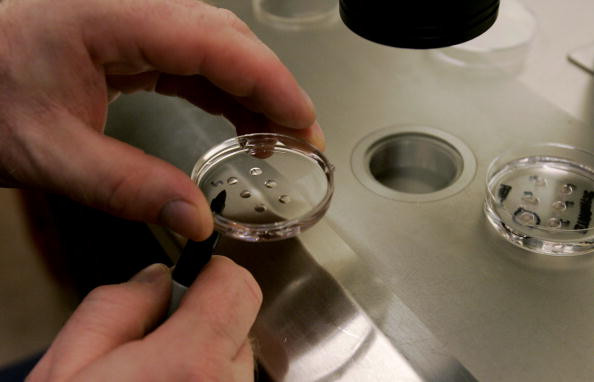UK proposes rules to allow embryos to be made from a combined DNA of three people

A new set of rules proposed in Britain, if approved by parliament, will make Britain the first country in the world to allow embryos to be made from the combined DNA of three people.
The move it is hoped will prevent mothers suffering from life threatening genetic disorders from passing the diseases onto their babies, reported AP News.
(This) will give women who carry severe mitochondrial disease the opportunity to have children without passing on devastating genetic disorders.
(This) will give women who carry severe mitochondrial disease the opportunity to have children without passing on devastating genetic disorders," said Dr. Sally Davies, UK's chief medical officer in a statement issued on Wednesday (17 December).
In the statement, the department of health confirmed the news after consulting with key figures from the scientific community and using their "extensive advice".
Once approved by the parliament, the new methods are predicted to be used by a considerable number of British women every year who are diagnosed with faulty mitochondria.
Mitochondria, often referred to as 'the powerhouse of the cell', are the structures found outside a cell's nucleus that are responsible for supplying its energy. A defect in their genetic code is often the trigger that leads to diseases, like muscular dystrophy, heart problems and mental retardation.
Under the new methods, the nucleus DNA is removed from the egg of a prospective mother and inserted into a donor egg that also has a nucleus DNA removed.
Medical researchers are crossing the crucial ethical line that will open the door to designer babies.
The result is that the embryo still has the nucleus DNA from its parents, however with the mitochondrial DNA from the donor.
Since a small percentage of the donor's DNA will still be passed onto the embryo's genes and onto future generations, several ethicists have criticized the technique and instead recommended the use of alternative methods, like egg donation.
David King of Human Genetics Alert, a group that criticizes genetics research said: "Medical researchers are crossing the crucial ethical line that will open the door to designer babies."
Genetic modification of embryos is currently forbidden under British law.
© Copyright IBTimes 2025. All rights reserved.






















